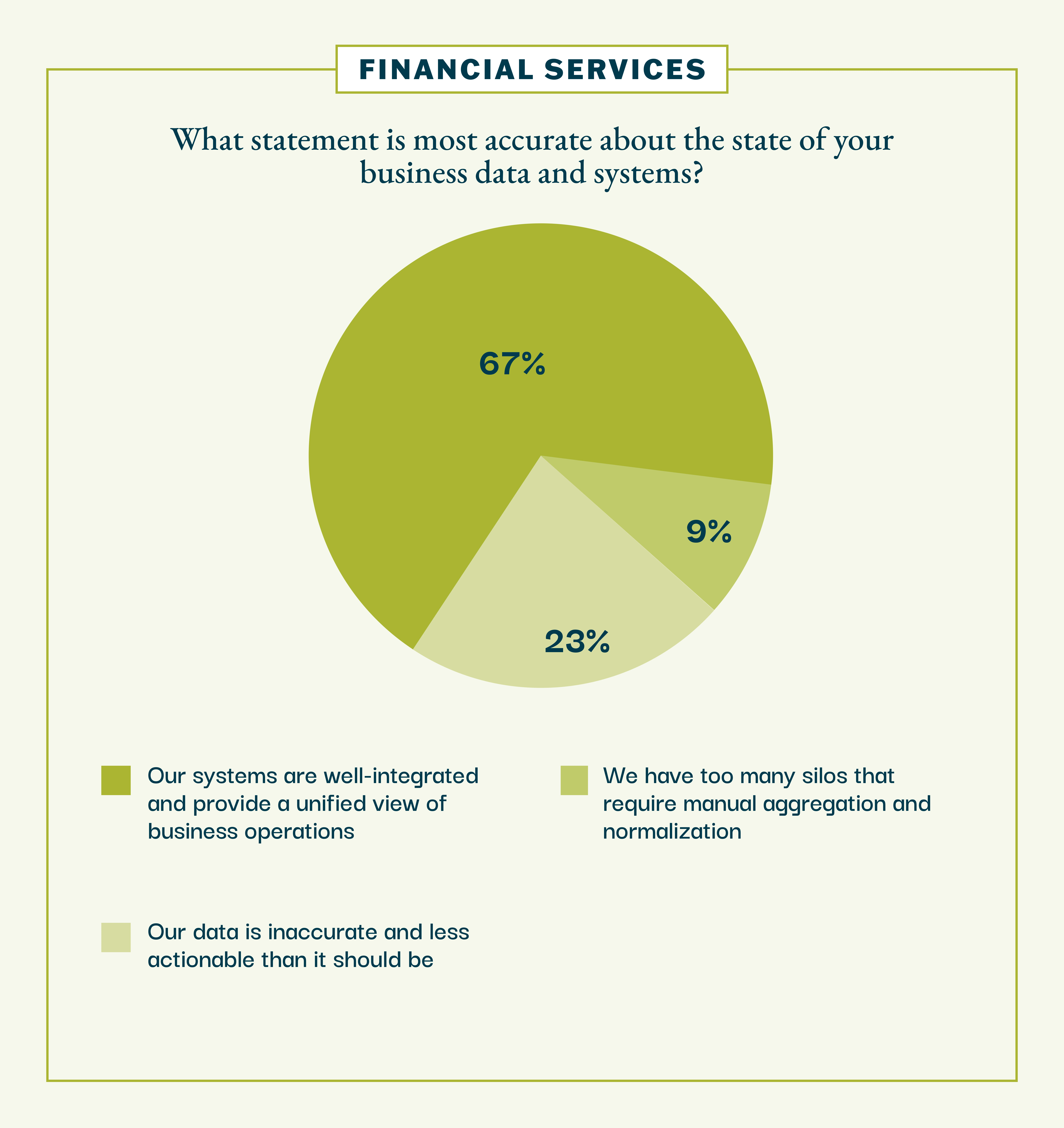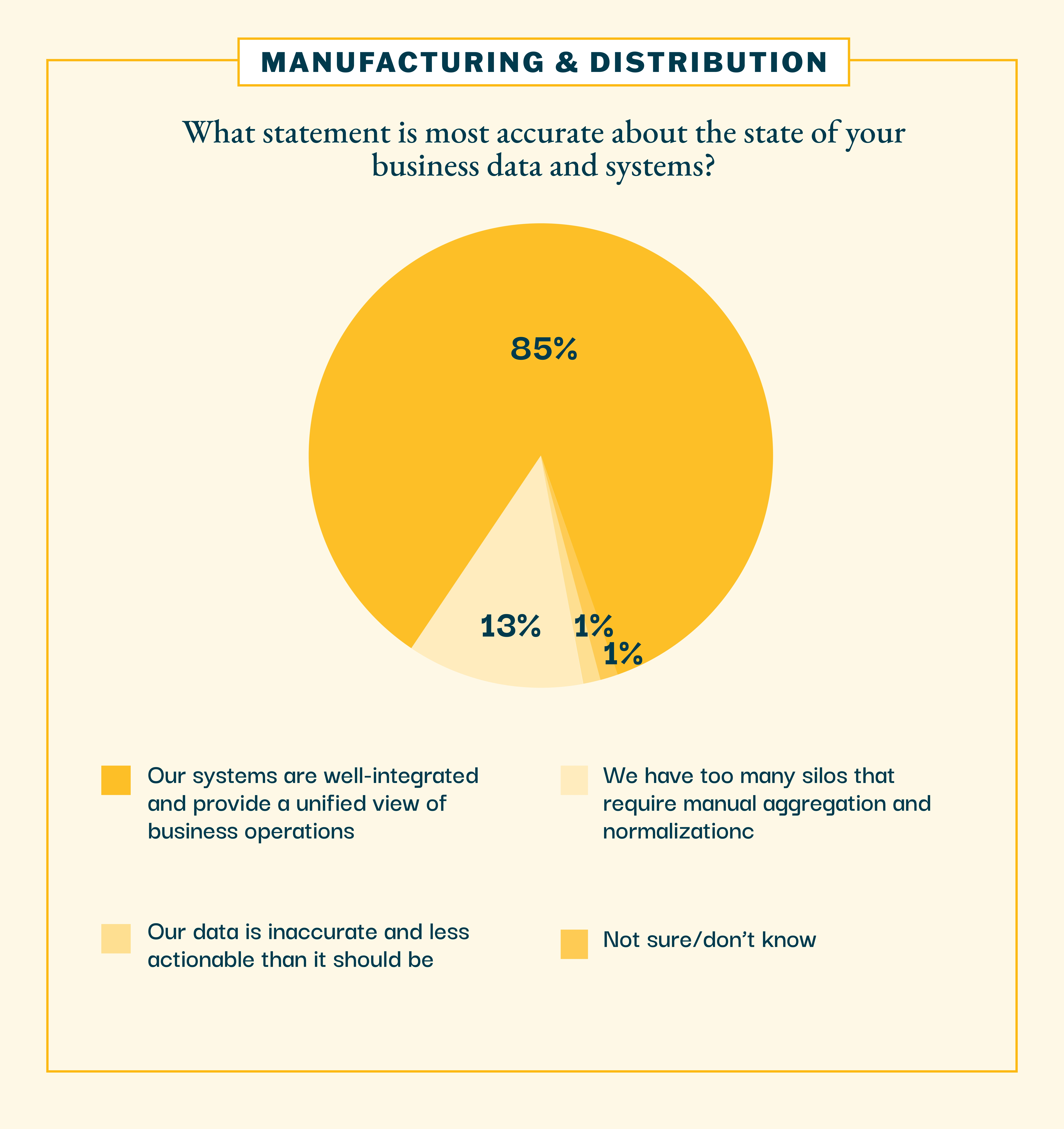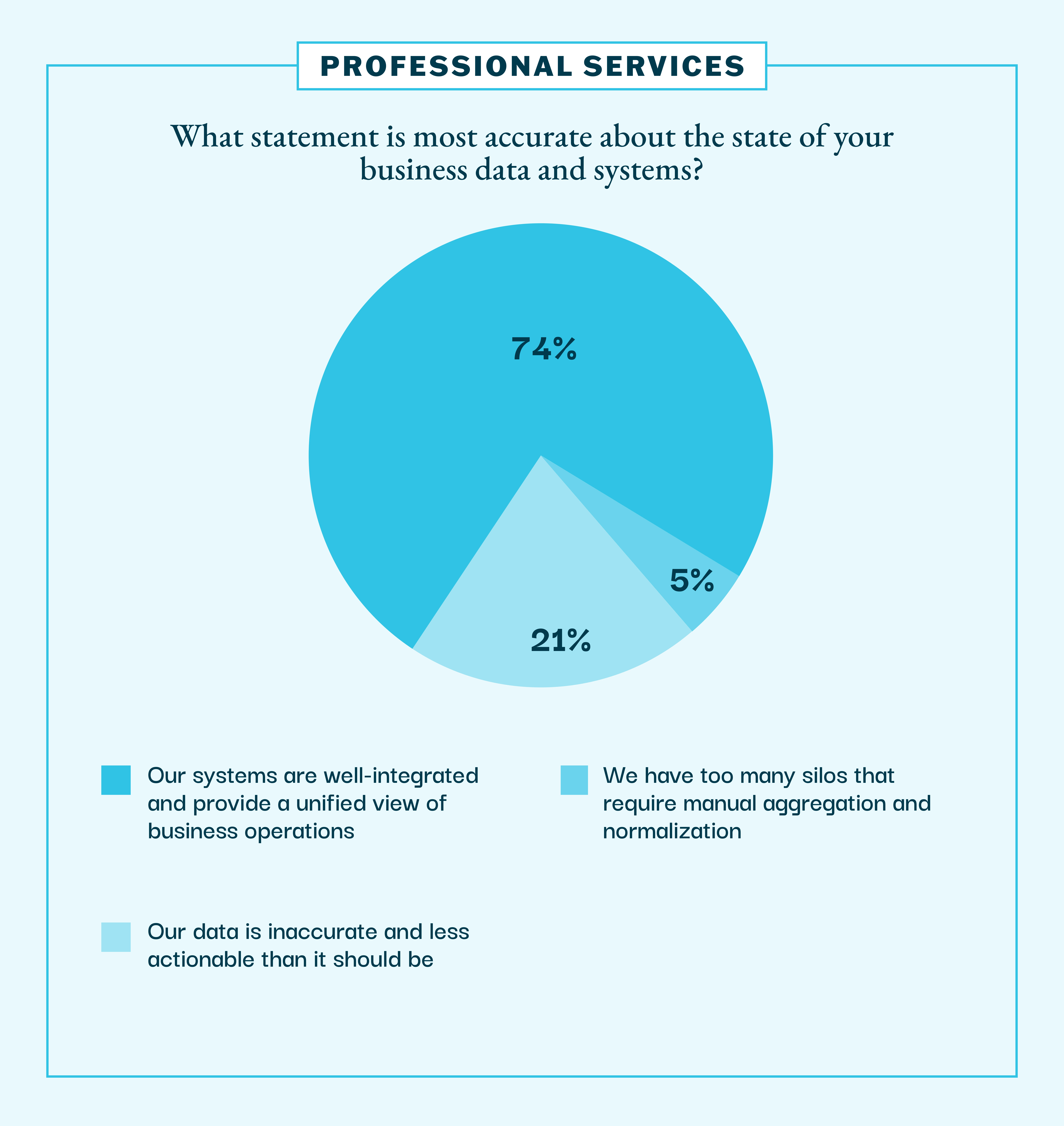May 13, 2025 - Companies have been modernizing rapidly and have made big strides according to our annual survey of 1,000 business leaders. This article explores how companies are generating business intelligence, how they characterize the success of those programs, and how results vary by industry. The data is drawn from our recently released 2025 Private Company Performance Report.
Most People Can Now Readily Access Business Data
A heartening 80% of companies now feel their business systems are integrated enough to make decision making easy. We cannot overstate how impressive this milestone is. It is the result of decades of companies adapting to digital commerce, supply disruption, and rising costs where they increasingly need to see accurate performance metrics daily.
Investments have been especially heavy in foundational business systems: 95% of companies upgraded their enterprise resource planning (ERP) system in the past five years, up from 70% in 2024. Similarly, 94% have invested in customer relationship management (CRM) technology in the past 12 months, with Salesforce being the most common (mentioned in 39% of CRM upgrade responses).
Companies are not universally happy with these implementations: 75% of respondents say the information is inconsistent. This suggests there are still plenty of integration opportunities to work through, including better data warehousing. Companies that have plentiful access to only inconsistent data cannot rely on it and are only halfway there to gaining better “intelligence.” They now need to normalize and rationalize all that data, which requires upskilling their workers to cultivate more digital and technical skills.
Variance in Accessing Data by Industry
Real Estate Industry
Eighty-five percent of real estate companies are satisfied with the outputs from their data and analytics. This is unsurprising given how data-driven the industry already is, from site-selection software to analytics to building automation systems. These companies are accustomed to ingesting third-party data and have the tech and intelligence teams to make sense of it — and are also more likely than other industries to outsource tech and finance functions.

Financial Services Industry
Thirty-three percent of financial services companies are not satisfied with the quality of their data outputs. There are a few reasons for this. One, finance is the most data-heavy field and respondents in this group are likely to have higher maturity with business intelligence. They are less satisfied because they know what they can expect. Two, their industry has higher expectations for data quality and a shorter feedback loop, depending on the sub-industry, such as high-frequency trading or banking.

Manufacturing and Distribution Industry
Eighty-five percent of manufacturing and distribution companies are satisfied with their data systems. This is very likely the result of years of grappling with supply chain disruption and investing in stronger backend technology systems, as well as staff with digital skills. Note that these companies are 17% more likely than other companies to report significant progress on upskilling for tech skills.

Professional Services Industry
Professional services companies are less satisfied than the average company with the quality of their data outputs, though 74% still say they are satisfied. They report too many data silos which require them to combine and sort that data manually which means many of these leaders are reliant on IT for answers. When they must file tickets to ask questions, it slows down the business and subverts the very purpose of the business intelligence program.

Less Reliance on IT Means More Organizational Agility
This year, 63% of companies say they can pull dynamic, ad-hoc reports and visualizations with the capability to present data in multiple dimensions. This allows leadership to address changing business demands without IT assistance. While that number is encouraging, it is worth focusing on the converse of 4 in 10 companies: To make decisions, they must first make requests, resulting in lags.
Further, 54% of companies are relying on ERP data to generate their business intelligence and reporting. While this is serviceable for some departments, it does not suggest a high quality of data outputs or customization to people’s roles and metrics. This creates a major data accessibility gap where the metrics exist but are not operationalized.
More Data Means More Cybersecurity Protection
There is a cost to companies modernizing their business intelligence programs and providing everyone access to ready data — more of that data is online, and potentially exposed. One in five leaders (21%) are concerned about the accuracy and security of critical business data. Fifty-four percent are confident in their data accuracy/security progress, leaving only 25% having fully realized complete data accuracy and security.
The business intelligence initiative is no doubt a worthy endeavor — though it helps to have specialized guidance on its implementation. An outside team may be able to help implement those systems with stronger access controls and security to provide the upsides without creating new risk.
Citrin Cooperman’s Private Company Performance Report
Citrin Cooperman has been serving and advising middle-market, private companies and high net worth individuals for over 40 years and created an annual Private Company Performance Report to discuss what is top of mind for business leaders across the country. Access our report to discover valuable insights into the trends, opportunities, and challenges facing businesses today.
